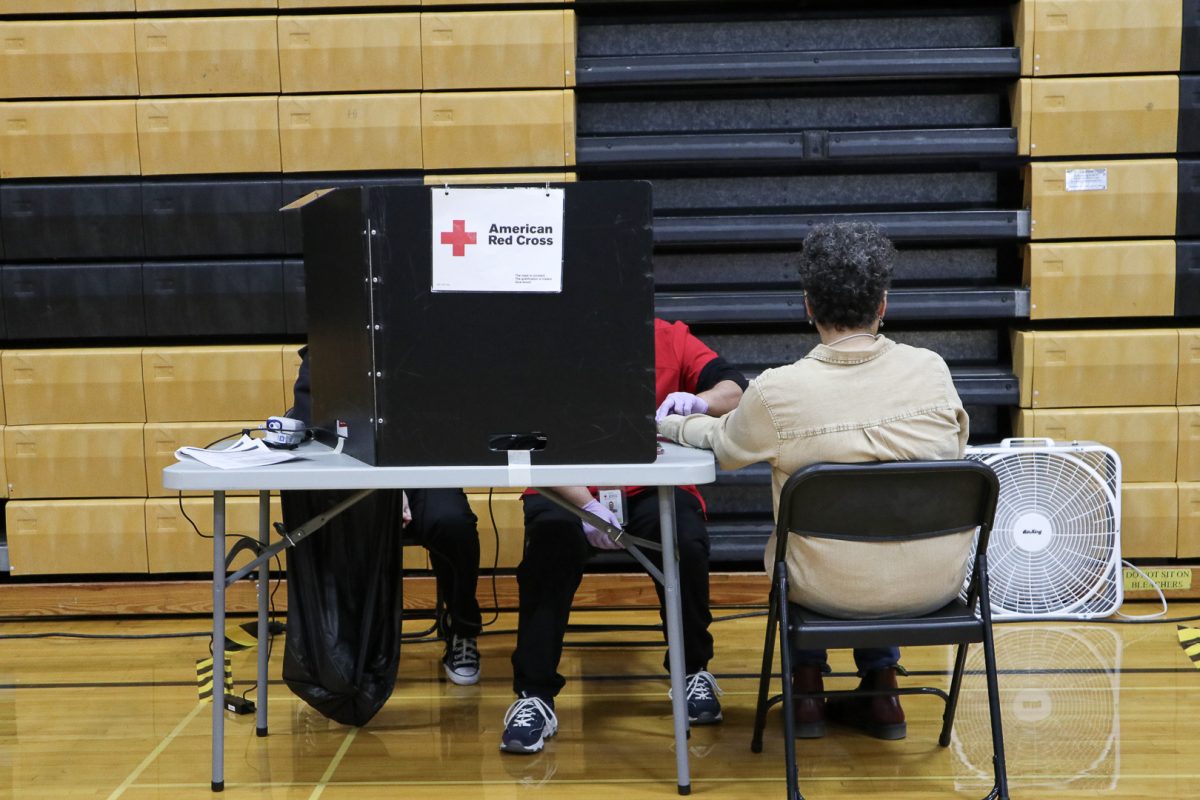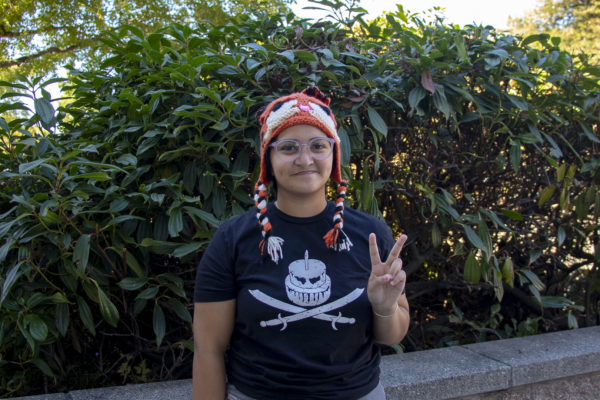Every two seconds, someone in the U.S. needs blood, according to the American Red Cross. On Dec. 1, the Red Cross Club hosted its annual blood drive in the gym, giving students and staff the opportunity to donate blood and help save lives.
Red Cross Club vice president Bennett Ye (he/him) said the majority of the time, blood is used for transfusions, especially for people with burn wounds or other injuries. One donor can save three lives, according to the Red Cross.
To donate, students must be at least 16 years of age and get parental permission if under 18. Ye says the ability to give blood depends on gender-specific height and weight restrictions. Eligibility also depends on a potential donor’s medications and their medical history. People also aren’t eligible to donate blood if they are taking blood thinners or are at risk for HIV or any other STD.
Ye said that people are naturally inclined to give back and make a positive impact on someone’s life.
“I think a lot of people just naturally have the feeling they want to give back and help people, or it’s just like they want to feel like they’re part of something bigger than themselves, which really drives people to donate,” Ye said.
However, donor Hazel Colver (xe/they/he) said some people may have phobias of needles or blood that prevent them from donating.
“I will never pressure anyone to try to donate blood. If you’re able to mentally and physically give blood, you totally should. But there’s never any pressure because I understand if it’s a mental strain,” Colver said.
Red Cross Club officer and junior Neve Gelatt (she/her) said there were around 70 donors last year. Collectively, they saved 120-150 people. This year, 68 people signed up and numerous students did walk-ins. The donated blood can potentially save over 200 lives. Gelatt says donating blood not only saves lives, but it can help you learn about yourself more.
“If you learn that you have a rare blood type or you learn that you are a universal donor, then you can donate in the future and save even more lives because you just know that about yourself,” Gelatt said.
Ye said the Red Cross has resources for people who are curious about donating blood to help them make the decision.
“I think if you’re on the fence about it, Red Cross has a lot of resources that talk about how this [donated blood] is being used, so that will give you a lot more information about it,” Ye said.
Those who missed the blood drive at school can still donate blood. The American Red Cross website provides information on how to donate, including criteria to donate. You can find a blood bank near you, such as Northwest Bloodworks, which has multiple branches in the Seattle area.
By donating blood, individuals contribute to maintaining an adequate blood supply to save lives. Ye said it allows people to contribute to their community and even outside of it.
“When you’re donating blood, not only benefiting your community, you’re benefiting people who you might not even know, and that’s a really great feeling just to help out with doing what you can do.”











